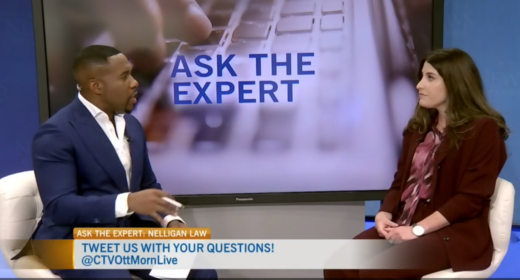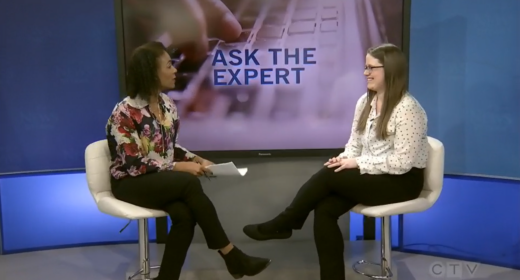Many people are unfamiliar with the notion of a life estate when making their Will, although it may be exactly the kind of compromise they are seeking between providing for the needs of certain beneficiaries in the short term, and the needs of other beneficiaries in the long term.
A life estate is an interest in real property or assets that a person is given for the duration of his or her life. This interest can take many forms, including use of a family home, use of a cottage, or access to income from an investment portfolio.
The point is that the life estate holder (also called the income beneficiary) benefits from the use of the property or the income earned from the financial investments for the duration of his or her life. After this time, the ownership of the real property or assets then passes to someone else so designated by the Will, who is considered the 'remainder man' (also called the capital beneficiary).
Life estates are often used in Ontario – particularly in light of modern family structures – in the event of second marriages where the testator wants to provide for his or her second spouse without compromising the inheritance of children from a previous relationship. A typical scenario involves a testator leaving the use of the family home to his or her surviving spouse, with the house ultimately going to the children when the surviving spouse dies or relinquishes the life estate.
While these types of gifts may seem like the perfect compromise between beneficiaries, when making the gift of a life estate to someone in your Will, it is important that you and your lawyer consider the following:
Who pays for what?
The gift of a life estate – particularly one of real property like a house or cottage – comes with expenses attached.
Traditionally, the income beneficiary was responsible for the upkeep and maintenance of the home, whereas the capital beneficiary was responsible for paying the mortgage. Nowadays, if disagreements arise and the Will does not expressly set out funds earmarked for these expenses, a court will be forced to allocate them between the income and capital beneficiaries. This allocation would be determined based on the age and resources of the income and capital beneficiaries, the intentions of the testator or any other conditions placed on the life interest.
It is of course best not to leave the matter of financial concerns related to the life interest up to the courts when planning your Will. For example, if the gift is a house, any outstanding mortgage will likely be discharged if your Will contains the standard clause "to pay my just debts." However, it is important that you provide a fund for, or clearly state who is responsible to pay the property taxes, utilities, maintenance, upkeep, and major repairs. If the gift is income from an investment portfolio, it is important to set out who is responsible for the investment costs or fees for a financial investor.
Who manages the life estate?
Proper consideration should also be given to decide who you want in charge of your life estate after you die, as it will be an ongoing matter until the income beneficiary dies or relinquishes the life estate. Simply put, life estates are a kind of trust, and trusts require someone to manage them, namely, the trustee. The trustee's job is to preserve the property of the life estate, also know as the trust property, and carry out the intentions you set out in your Will for the trust.
You can give the trustee (or trustees) a certain level of discretionary authority in their management of your life estate. A prime example is the authority to encroach upon the trust capital where necessary to support the income beneficiaries – at the expense of the capital beneficiaries. [This is common when the life estate property is an investment portfolio.]
It is possible to appoint more than one trustee to administer the trust, but it is important to remember that they must act unanimously when making decisions. With this in mind, you could consider appointing your surviving spouse and children as the trustees and beneficiaries of the trust. But if there is the potential for conflict to arise in this arrangement, it may be wise to work with your lawyer to determine a suitable independent trustee who would be impartial but understanding of your intentions.
What happens if the life interest is disclaimed?
It is also important to include instructions in the Will in the event the life interest is disclaimed, which is a refusal to accept the gift.
An income beneficiary is under no obligation to accept a life estate interest, and can relinquish his or her interest by disclaiming it.
In contemplating your instructions for a disclaimed life interest, it is important to remember that once a disclaimer is made, it can result in the acceleration of the estate interest to any successive beneficiaries appointed in the Will. If there is no provision in the will for the remainder of the gift after a disclaimer, the property falls into the residuary of the estate for distribution. The property could then be distributed generally amongst the heirs of your estate, potentially saddling them with a burden they had not expected.
Final Thoughts
Above all, it is important to talk to a lawyer to ensure your intention to gift a life interest is properly set out in your Will. An estates lawyer will ensure that it is clear in your Will that your intention is to create a life estate that you are gifting, and not something else, such as an absolute interest. There have been many court cases where Wills that have been less than clear concerning the nature of a gift have resulted in rulings that may, or may not, have been in line with the original intentions of the testator. Taking the time to make these considerations with your estates lawyer is the best possible way to ensure that your wishes and intentions are followed, and that your loved ones are provided for in the manner deemed the most fair by you.
Jane Thomson is an associate lawyer with the Ottawa law firm of Nelligan O'Brien Payne LLP (www.nelligan.ca) and a member of the Wills and Estates and Family Law Practice Groups.
[This article originally appeared in the January/February 2015 edition of Fifty-Five Plus Magazine.]


